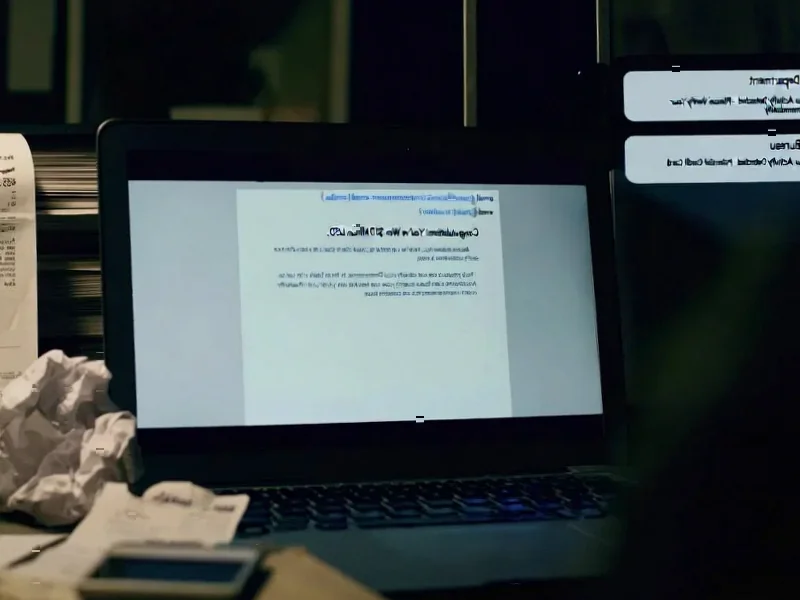According to Forbes, the Supreme Court has agreed to hear oral arguments on November 5 in Learning Resources Inc. v. Trump, a landmark case challenging presidential authority to impose tariffs under the International Emergency Economic Powers Act (IEEPA). The case consolidates two educational toy companies’ challenges against the president’s use of IEEPA to impose tariffs, with petitioners arguing that Congress must provide specific delegation for tax and tariff powers rather than relying on broad emergency authorities. The companies won at the district court level before the government appealed to the D.C. Circuit, leading to the Supreme Court granting certiorari before judgment. The petitioners contend that while Congress can delegate taxing power, it must do so with clear language specifically mentioning tariffs, and that IEEPA’s broad authorization to “regulate” imports doesn’t meet this standard for what they call the “uniquely dangerous” tax power.
A Constitutional Battle Over Trade Authority
This case represents a fundamental challenge to how presidential trade powers have evolved over the past century. Since the Reciprocal Trade Agreements Act of 1934, Congress has increasingly delegated tariff-setting authority to the executive branch, recognizing that international trade requires flexibility that legislative processes cannot provide. The modern global economy depends on this delicate balance—presidents need authority to respond quickly to foreign policy crises and trade disputes, while Congress maintains ultimate constitutional responsibility for taxation. If the Court sides with the petitioners, it could invalidate not just recent tariffs but potentially decades of trade agreements and emergency economic measures that have relied on similar delegations of authority.
Immediate Market and Trade Implications
The business community faces significant uncertainty regardless of the outcome. A ruling against presidential tariff authority would create immediate chaos in international supply chains, as companies have built their logistics and pricing models around existing tariff structures. However, upholding broad executive power creates different risks—businesses must constantly factor in the possibility of sudden tariff changes based on presidential declarations of national emergency. This case particularly affects industries with complex global supply chains, including technology, automotive, and consumer goods manufacturers who rely on predictable trade policies for long-term investment decisions. The educational toy companies bringing this case represent just one segment of thousands of businesses affected by tariff volatility.
Potential Doctrinal Shift in Nondelegation
The Court’s recent jurisprudence suggests growing skepticism toward broad delegations of legislative power. As noted in the Federal Communications Commission v. Consumers’ Research dissent cited by Justice Gorsuch, there’s emerging concern about Congress abdicating its “power of the purse” responsibilities. This case could become the vehicle for establishing a stricter nondelegation standard specifically for taxation, creating what legal scholars call “tax exceptionalism” in separation of powers doctrine. Such a ruling would have implications far beyond tariffs, potentially affecting everything from environmental taxes to healthcare mandates where Congress has delegated revenue-raising authority to executive agencies.
Historical Precedent vs. Modern Reality
The petitioners’ argument hearkens back to an 18th-century vision of congressional power, when the Tariff Act of 1789 specified exact rates for specific items like “10-cent-per-gallon tariff on all distilled spirit of Jamaica proof.” However, this historical argument ignores how global trade has evolved. Modern trade agreements involve thousands of product categories and require constant adjustment to respond to currency fluctuations, foreign subsidies, and changing market conditions. The Court must balance original constitutional understanding against practical governance needs in a globalized economy where trade moves at digital speeds and congressional action proceeds at legislative pace.
Broader Implications for Emergency Powers
This case also tests the limits of emergency powers in economic policy. IEEPA was designed for genuine national security crises, but its use has expanded to cover broader economic and trade objectives. A ruling requiring more specific congressional authorization for tariffs could ripple through other emergency powers, potentially affecting sanctions regimes, export controls, and other economic tools presidents have used under similar statutory authorities. The government’s argument that foreign affairs deserve greater executive discretion will be tested against the constitutional text that places all taxation powers squarely with Congress.
How Industries Should Prepare
Business leaders should prepare for multiple scenarios. A narrow ruling favoring the petitioners could invalidate specific tariffs while preserving broader presidential trade authority. A broader ruling could require congressional approval for all future tariff changes, potentially slowing trade policy to a crawl but providing more predictability. Companies with significant international operations should review their contingency planning for both outcomes, considering how different supply chain configurations might become more or less viable depending on whether tariff authority remains flexible or becomes locked into legislative processes. The November 5 oral arguments will provide crucial signals about which direction the Court is leaning.




